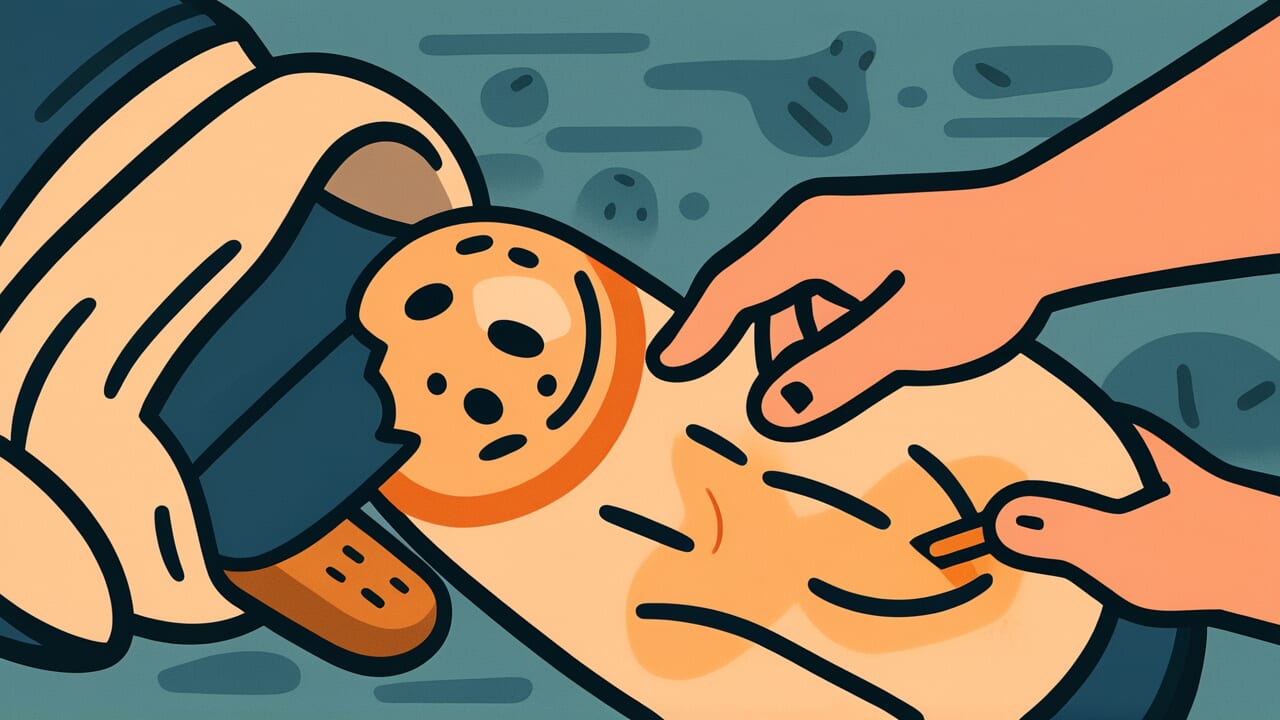How to Read “When you peel the skin, the flesh comes with it”
Kawa hikeba mi ga tsuku
Meaning of “When you peel the skin, the flesh comes with it”
“When you peel the skin, the flesh comes with it” means that when you try to take something by pulling too hard, you end up losing more than you intended.
This proverb especially warns that excessive demands or greedy actions often backfire and cause harm.
This saying is used in situations involving debt collection or profit-seeking that goes too far. When you try to squeeze everything out of someone by force, you destroy their livelihood and trust.
In the end, this creates disadvantages for yourself as well.
Even today, people use this proverb to explain the importance of moderation in business and relationships. If you chase only immediate profits and push others too hard, you lose long-term relationships and future possibilities.
This saying warns against such foolishness and remains relevant in modern life.
Origin and Etymology
No clear written records explain the origin of this proverb. However, based on its structure, it likely comes from the work of skinning animals.
When skinning an animal, if you pull too hard trying to remove only the hide cleanly, the meat that should remain on the body comes off with it.
For craftsmen, this meant failure. Leather was a precious resource, so it needed careful handling.
This expression was also used in contexts like debt collection and tax gathering. During the Edo period, merchants and common people understood a lesson.
If collection became too harsh, it would strip away the debtor’s livelihood. This would ultimately destroy their ability to repay at all.
“Pulling the skin” is an action that removes something superficial. But if done excessively, it damages the main body itself.
This physical phenomenon perfectly expresses the danger of “going too far” in human relationships and economic activities.
Our ancestors’ wisdom is embedded here. They compared everyday work to teach the importance of knowing proper limits.
Usage Examples
- That company’s price reduction demands on suppliers are too harsh. It’s a case of when you peel the skin, the flesh comes with it—they’re losing excellent business partners one after another
- Managing your child’s allowance too strictly is when you peel the skin, the flesh comes with it. You end up taking away opportunities to develop money sense
Universal Wisdom
The proverb “When you peel the skin, the flesh comes with it” contains deep insight about human desire and self-control.
Everyone has the desire to obtain the maximum from what’s in front of them. This is natural as a survival instinct.
However, when this desire loses its restraint, people commit great mistakes.
What’s interesting is how this proverb explains the foolishness of “taking too much.” It doesn’t preach morality. Instead, it explains greed as a practical loss.
It doesn’t say greed is bad so you should avoid it. It teaches that greed ultimately causes you to lose. This shows a deep understanding of human nature.
People rarely change their behavior just because something is “right.” But when they understand “I will lose,” they can change their actions.
Our ancestors knew this quality of human nature well.
This proverb also teaches the importance of the concept of “moderation.” Proper balance matters in everything. Take what should be taken, leave what should be left.
This discernment is the wisdom that brings long-term prosperity. Our ancestors must have witnessed many times the foolishness of losing everything for temporary satisfaction.
When AI Hears This
When pulling the skin off fish, trying to take only the skin causes flesh to come with it. This phenomenon demonstrates an important principle in systems thinking.
System elements are strongly coupled with each other. Trying to change just one necessarily affects other parts.
Donella Meadows’ leverage points theory identifies 12 levels of effectiveness for system interventions. The least effective is changing numerical targets.
The most effective is changing the system’s purpose or paradigm. In the fish example, a superficial goal of not wasting flesh (low leverage point) matters less than understanding that skin and flesh are structurally connected (high leverage point).
The same phenomenon appears in corporate reform. In a struggling company, simply raising sales targets won’t work. If the “skin” of employee mindset and organizational culture doesn’t change, you cannot obtain the “flesh” of goal achievement alone.
Trying to forcibly tear them apart creates a “flesh comes with it” situation where you lose talented people too.
This proverb shows the reality that essential system change always involves costs and side effects. But that’s not failure—it’s evidence that the system is truly changing.
Lessons for Today
This proverb teaches modern people the importance of “the wisdom of leaving margins.”
Modern society pursues efficiency and maximization. Business seeks profit maximization. Time management uses minute-by-minute schedules.
Even human relationships are sometimes measured by cost-performance. But this proverb encourages modern people to stop and think.
When you interact with someone, are you trying to get everything you can from them? Toward subordinates, business partners, or even family—are you demanding “more” too much?
Truly wise living means leaving others with spare capacity. This isn’t just kindness—it’s an investment in long-term relationships.
Be satisfied with eighty percent today. Stop before the other person becomes exhausted. By doing this, the relationship continues tomorrow, and next year.
Life is not a sprint but a marathon. A sustainable pace, rather than maximum output for a moment, will ultimately carry you much farther.



Comments